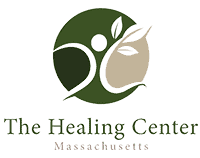Trauma and addiction can be life altering. Struggling with these can lead to changes in an individual’s life that can lead to problems in all facets of the person’s life. There is a strong connection between the two, trauma changes the brain and its reaction to situations. This can lead to substance use and abuse that can result in addiction for an individual who has experienced traumatic experiences. Understanding how trauma and addiction correlate can help an individual to begin healing in order to lessen the effects of the trauma on their lives.
What is Trauma
Trauma is an emotional and psychological response to a terrible event. This can mean the event was overwhelming, or it resulted in extreme distress or harm. Trauma can be a result of different types of events. These can include:
- Car accidents
- Domestic violence
- Witnessing violence
- Natural disasters
- Physical assault
- Sexual assault
- Emotional abuse
- Neglect
- bullying
It is important to note that these experiences do not always result in a trauma response. Each individual who experiences an event will react differently. Proper care and treatment for trauma is vital to the healing process to occur.
How Trauma Affects the Brain
Trauma affects the brain by disrupting neuro pathways that are essential for cognitive functioning. It can also impair emotional regulation, and affect memory processing. Dysregulated stress response can also occur as a result of trauma. This can lead to hypervigilance, difficulty coping with stress, and heightened arousal. Trauma can also lead to the development of mental health conditions.
Connection Between Trauma and Addiction
Trauma and addiction have a correlation. The way trauma affects the brain can lead to the development of different mental health conditions such as generalized anxiety, social anxiety, depression, or personality disorders. These conditions can make it extremely difficult to live life on a daily basis. Experiencing trauma and developing addictions can be a result of trying to self medicate these underlying mental health concerns that may develop. Trauma and addiction can be extremely complicated and require proper care in order to begin the healing process.
Signs and Symptoms of Addiction
Addiction can be extremely devastating to the lives of individuals who are struggling. It can affect their relationships, ability to maintain social and professional commitments, and cause distress and upheaval in their general well being. Signs and symptoms that someone may be struggling with addiction can include both physical and behavioral changes.
Physical signs and symptoms include:
- Withdrawal
- Constipation or diarrhea
- Insomnia
- Lack of personal hygiene
- Cravings
- Sweating
- Sudden extreme weight loss
- Violent behavior
- Trembling or seizures
Behavioral signs and symptoms include:
- Lack of motivation
- Loss of interest
- Isolation
- Obsession with the substance
- Continued use despite negative consequences
- Lyons
- Secrecy
- Financial instability
- Denial
- Excessive use or misuse of the substance
- Risky behaviors
These signs and symptoms can be indicative of a substance use issue and encouraging a loved one to seek professional help can be a catalyst to them gaining control of their life back. Trauma and addiction can be dangerous, and can lead to fatal results. Getting help as soon as possible can help to reverse some of the negative health and life consequences to ensure a person is able to live a normal life.
Treating Trauma and Addiction
Left untreated, trauma and addiction can have adverse, and even fatal results. Proper professional care can ensure that these adverse effects do not occur, or that they can go away. Using therapies to heal both trauma and addiction can be extremely beneficial for individuals who are struggling. There are different forms of therapy that can be used, however they are all beneficial to helping change the lives of people who have experienced trauma and are struggling with addiction.
Cognitive behavioral therapy (CBT) is used to help change the negative thinking and behavioral patterns into positive and life changing ones. It helps to identify how these negative ways of thinking can affect a person’s behaviors. Dialectical behavioral therapy (DBT) helps those individuals who struggle with feeling emotions intensely. It helps by teaching someone to accept the feelings, feel them, and know that they will pass. Eye movement desensitization and reprocessing (EMDR) therapy is a process in which eye movement is used to process trauma that a person has experienced. Struggling with addiction, detox can help to alleviate the symptoms of withdrawal, and treatment for the addiction can help to teach positive coping skills to help change behaviors that can lead to using substances. Proper professional care can help heal trauma and addiction making life easier for the person who struggles.
The Healing Center Can Help
Struggling with trauma and addiction can be a difficult experience for anyone who undergoes this type of struggle. It can be life altering and make it difficult to live daily life. If you or a loved one are struggling with trauma and/or addiction, The Healing Center can help. We offer comprehensive care to those who are struggling, and help to build a healing environment where trauma can be addressed, and addiction can be healed. Call us today and begin your healing process.

